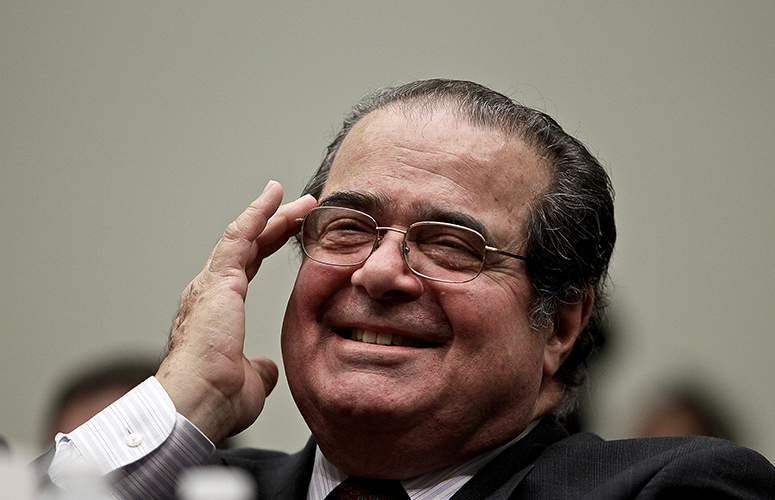3Qs: Justice Scalia’s legacy, and what his death means for politics and the law

The unexpected death of U.S. Supreme Court Justice Antonin Scalia on Saturday ignited a political debate that could define President Barack Obama’s final year in office and bring new drama to an already contentious presidential primary. Obama said Scalia, an ideological conservative who was appointed by Ronald Reagan in 1986, “will no doubt be remembered as one of the most consequential judges and thinkers to serve on the Supreme Court.” This term, the Supreme Court is expected to hear cases that affect abortion rights, immigration, and voting rights, among other hot-button issues, and Scalia’s replacement could reshape the court for decades to come.
news@Northeastern spoke with Michael Meltsner, George J. and Kathleen Waters Matthews Distinguished University Professor of Law and a constitutional law expert, who discussed Scalia’s legacy as well as what his death means for politics and the law.
Commentators and politicians have called Scalia one of the most influential justices to serve on the Supreme Court. You have argued before the court and taught courses about the institution for many years. How do you view Scalia?
He was no doubt a larger than life figure and his presence affected the way other justices behaved and saw their roles. But one should not forget while appropriately celebrating his intelligence and talents that he was a deeply divisive figure who often alienated other members of the court by his criticism, which often seemed to border on the personal. As he failed to win a majority for many of his more controversial positions on issues such as abortion, gay rights, and capital punishment, one could argue that his greatest impact was on conservative scholars and politicians who saw him as voicing their hopes for a different cast to mainstream constitutional understandings.
Scalia’s death immediately set off a political firestorm. Senate Majority Leader Mitch McConnell said, “This vacancy should not be filled until we have a new president.” President Obama, meanwhile, indicated his intent to put forward a nomination, saying “These are responsibilities that I take seriously as should anyone. They are bigger than any one party.” Senate Minority Leader Harry Reid went even further, saying “Failing to fill this vacancy would be a shameful abdication of one of the Senate’s most essential constitutional responsibilities.” How do you think these conflicts will be resolved?
The year to come will feature more politics than law, and unless Chief Justice John Roberts persuasively pleads with the Senate that the court must have a new justice—which is unlikely—the probable result is that nothing will happen. But the politics will be fascinating. Scalia’s death is really a great blow to Republicans who have lost an icon and who, by refusing to try to work out a compromise with the president, run a serious risk of giving the Democrats a winning campaign issue. They are basically saying that even a judge who they supported for a court of appeals position unanimously won’t pass muster now. That’s as close to hypocrisy as you can get. On the other hand, their position is a gift to Hillary Clinton, who can now make electability even more of a central issue in her struggle to win back Sanders voters. She will emphasize to constituencies that are looking to significant Supreme Court rulings that the odds are she is a better bet than Sanders to beat any GOP nominee.
How will Scalia’s departure affect cases before the court?
With eight justices, of course, you run the risk of 4-4 decisions that work to affirm the court below, regardless of what it decided. Note, however, that when this happens the result is limited to the parties before the court. There is no precedent arising from a 4-4 affirmance and the legal issues remain unsettled for another day. I have been involved in such a case and it’s deeply frustrating to the justices as well as the litigants. You may find, therefore, that many cases that could be stalemated at 4-4 will instead be decided by a majority on procedural grounds, again leaving the larger issues for a later day. These are the consequences of the decision by the Senate, if it holds, not to consider any candidate regardless of who he or she is.





